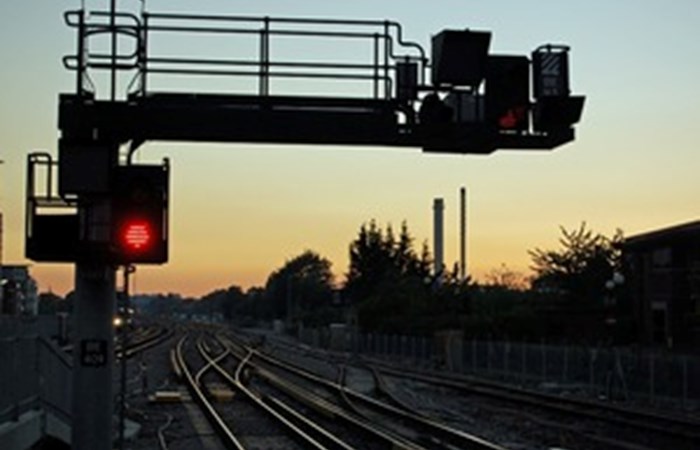Competition Markets Authority

The Competition and Markets Authority (CMA) has made its final decision in relation to Hitachis 1.7 billion proposed purchase of Thales Ground Transportation (GTS) business following an in-depth investigation.
Signalling systems are a core part of railway infrastructure, helping to maintain passenger safety by controlling the movement of trains and maximising capacity on railway networks. Hitachi Rail Ltd (Hitachi) and Thales SAs Ground Transportation business (Thales GTS) are both global suppliers of signalling systems for mainline and urban railway networks.
The CMAs independent Inquiry Group concluded that the merger would give rise to competition concerns regarding the supply of digital mainline signalling systems which are being used increasingly on the countrys main railway networks. The Group found that Thales and Hitachi are both well placed to supply these systems and that, should the merger go ahead, few credible competitors would remain.
In response to the CMAs findings, Hitachi has offered to sell its existing mainline signalling business in the United Kingdom, France, and Germany. The Group will need to approve the purchaser and Hitachis key customers in these countries will also need to agree to the transfer of the relevant signalling contracts. The Group considers this to be an effective and proportionate remedy, which will preserve competition and ensure customers, such as Network Rail, will not be negatively affected by the merger.
Based on new evidence that came to light after its initial provisional findings, the Group no longer has competition concerns regarding the supply of Communications Based Train Control (CBTC) signalling systems which are used on urban rail networks, such as the London Underground. The Group concluded that, while Thales is an important supplier to the London Underground - the only urban rail network in Great Britain with plans to carry out new CBTC projects in the foreseeable future - Hitachi would be unlikely to meet TfLs requirements for these projects.
Renewing the signalling systems on the London Underground is particularly challenging compared to most other metro systems, given the size, complexity and age of the network. It requires suppliers with significant expertise in delivering CBTC projects on similar, very large, complex networks. The Group concluded that Hitachi is unlikely to have attained the required level of experience by the time of the next major TfL signalling tenders.
Stuart McIntosh, chair of the independent Inquiry Group, said:?
Effective signalling is vital for safe and reliable rail travel, which is why it has been important for us to review this merger thoroughly before reaching a final decision.
We have concluded that the merger will not reduce competition to provide CBTC signalling systems, and in particular those required on the underground network in London.
The picture is not the same for digital mainline signalling. To address our concerns here, Hitachi is selling part of its existing mainline signalling business to an independent purchaser. This will protect competition, which is key to keeping costs down, maintaining high quality of service and promoting innovation.
All information relating to this merger investigation can be found on the Hitachi / Thales case page.
Note to editors:
- Digital mainline signalling is an in-cab signalling system that allows trains to run closer together safely and to travel at their optimal speeds; conventional mainline signalling provides information to train drivers via colour light signals alongside the tracks. Digital Communications Based Train Control (CBTC) signalling is the most common signalling technology used for urban metros such as the London Underground.
- The supply of mainline signalling in GB is currently undergoing significant change. A Signalling market study carried out by the British rail regulator the Office of Rail and Road (ORR) - found that there were two main players in the GB market for major signalling projects, namely Siemens and Alstom, and that other firms were not able to compete on equal terms. It also found that there has been a significant increase in the cost of signalling. ORR made a number of recommendations intended to increase competition from alternative suppliers, such as Hitachi and Thales.
- The principal GB customer for mainline signalling, Network Rail, is taking steps to introduce a broader range of suppliers into the GB market leading to greater competition and increased capacity to deliver projects. It has put in place a new tendering process for its current major signalling procurement, Train Control Systems Framework (TCSF), to implement the ORRs recommendations. In parallel, the introduction of digital technology will drive one of the most significant modernisation programmes in the nearly 200-year history of Britains railway infrastructure.
- Hitachis 1.7 billion proposed acquisition of Thales GTS is also being investigated by the European Commission.
- All media enquiries to the CMA should be directed to press@cma.gov.uk
